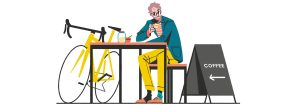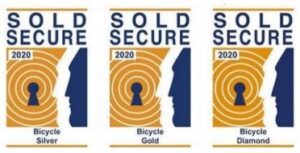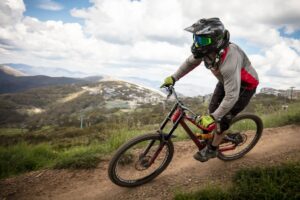How a training camp could change your season

I shall set the scene – imagine for a second that you’re a busy person. You’ve got a busy job and kids and a family and a partner and a bunch of other stuff going on, oh and the weather is bad where you live. On top of this, you’ve decided to try and improve at an endurance sport. Be that cycling, triathlon, running… whatever. The thing these all have in common is that they reward spending a huge amount of time training. Winter miles do mean summer smiles. In fact, studies done on stroke volume vs training volume show that the amount of blood you pump is directly proportional to the amount you train. The downside of this – having a busy life doesn’t help with training a lot.
Humans can only hack so much stress in their lives. That stress might come from training, it might come from family, it might come from your job – but it all adds up. When the human body gets stressed it reacts. Chronic stress leads to bad things. The stressor activates the hypothalamic-pituitary axis. The hypothalamus (a bit of our brain) stimulates the pituitary gland which secretes adrenocorticotropic hormone (ACTH). This hormone then stimulates the adrenal glands to produce cortisol which enables the body to regulate blood sugar – this extra regulation is the body’s main weapon to aid in returning to normal. The immune system is suppressed while this process takes place. This is why we often find that periods of high stress lead to illness. What can we do to avoid this? Book an adventure in a sunny country of course, far away from whatever is stressing you out.
If we assume your life is organised at or around the amount of stress you can handle, to increase your training you need to decrease some other stress. One (very fun) way of doing that is going abroad with your bicycle. So, we are going on a training camp but how should we train when we are there?
HOW SHOULD I TRAIN ON CAMP AND WHAT WILL IT DO FOR ME?
In a recent episode of the Triathlon Mockery podcast, professional triathletes Tom Oosterdijk and Joe Skipper talked about this. Obviously on camp you want to train a lot – it’s why you’re there. The problem is, if you overdo it and can’t train for 2 weeks when you get back then what’s the point? Simply replacing your overload of life stress with an overload of training stress won’t lead to increased fitness. You need to increase your training load while remaining beneath your personal overall stress ceiling. Do too much and get ill after then it’s all a waste of time and money. Do too little and a training camp is not worth the effort.
Below I have laid out some rules of thumb that have been useful to me over the last few seasons…
1 week camp:
Plan a recovery week the week after and go into the camp as the last week of the block. For example, if your training has a structure of three hard weeks and one easy week, book the camp as the third hard week. Training under fatigue is hard, the sun in Calpe or Mallorca will make it easier. In terms of volume, for one week you can probably do 50% more than average. Not 50% more than your peak volume. When you get home, recover and absorb the training. Don’t just pile fatigue on top of fatigue. You won’t get fitter, just miserable and tired. Plan a day off for the day of and after travel home then ease back into it extremely gradually.
2 week camp:
Similar to the 1 week camp, but better. Plan this as two big weeks (up to 30% more than your typical training week). Try and have two recovery days during the training week to ensure you get to the end of the camp alive. For a two week camp, you’re better off going into it a little fresher and also having an easy week after. Both of these will help you absorb the training a little more easily. Remember that the aim is to get fitter, not to get as tired as possible.
Anything longer:
Firstly, you’re extremely lucky! This is a great position to be in. In this example, train closer to normal but with longer aerobic sessions and just enjoy life!
On the camp, don’t make any significant changes to the amount of intensity you do. Increase your volume of aerobic sessions. This will allow you to absorb the higher training load without digging yourself a big hole that’ll take you weeks to get out of when you get home. If you usually train for ten hours with one hour of intensity, on camp you might do fifteen hours with 1 hour of intensity still. This will be enough stimulus to cause an adaptation response without digging you a fatigue hole that’s too difficult to get out of.
Training camp hacks to make the most of it
Fuel your sessions
Studies have repeatedly shown that consuming carbohydrates while you train improves the speed at which you recover from the training. Now is not the time to be worrying about keto or fasted rides. Fuel your sessions, recover fast, train more!
Eat healthily but eat a lot
In the same ballpark as the above, eating enough is the biggest challenge. For me, a typical 5 hour endurance ride burns around 3,800kcal. That doubles my daily needs and then some – making sure I eat enough is hard. It’s extremely important you don’t go into massive energy deficit. You will end up chronically fatigued and have to take extended time off. This defeats the point of the camp. Embrace the paella, don’t attempt to lose weight on a training camp. It will end badly.
Sleep is king
Sleep is a performance enhancing drug that’s legal and available to all. On camp you’ll likely be tired, build good habits and go to bed early. Sleep for as long as you need to. A good rule of thumb is to increase the amount of sleep you have with the amount of training you’re doing.
Vitamins and minerals
Make sure you’re consuming enough. Pay particular attention to iron and vitamin C to aid in iron absorption. It’ll make a difference to your energy levels and when you really push it, the little things make a larger difference.
If you want to go on a camp this year, you should. It’ll give you a nice bump to your fitness. A training camp will change your season for the better by having you arriving on the start line fitter and more confident. If you want peace of mind while you’re away, get yourself covered by Yellow Jersey – click here for a quote.






